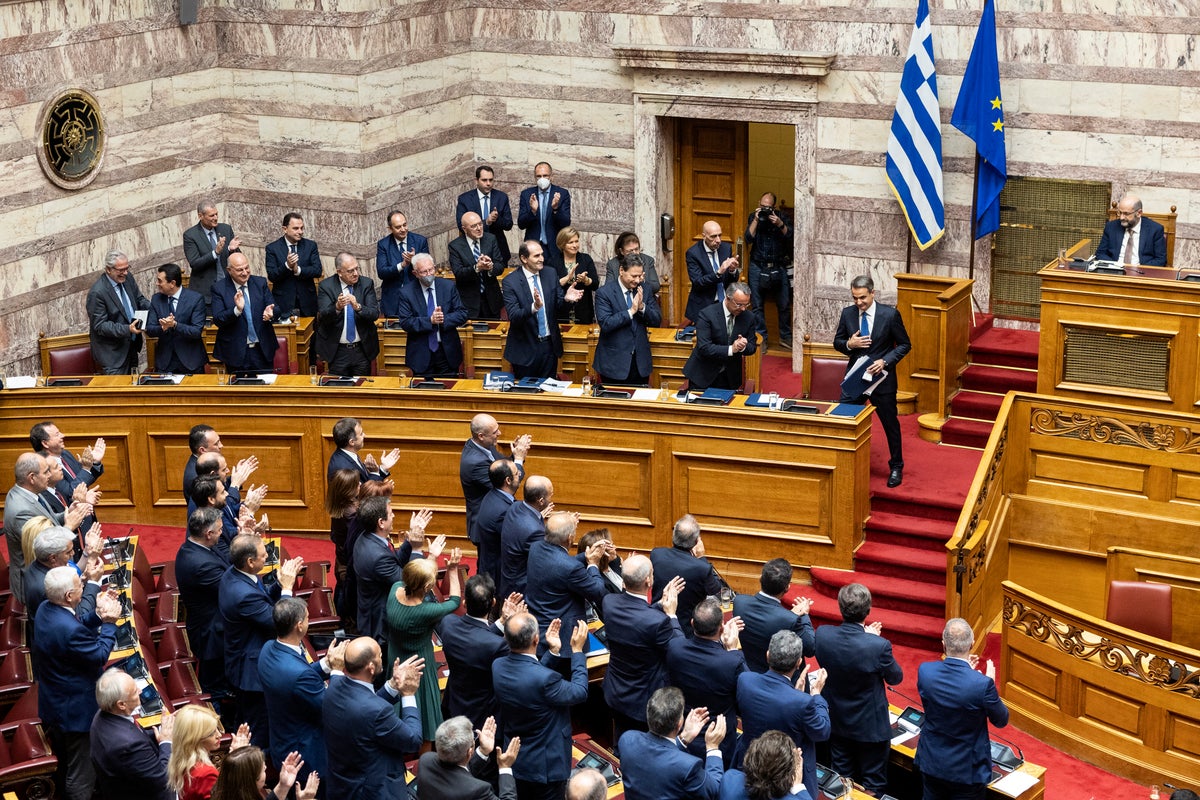
The Greek Parliament has approved the country’s first budget in 13 years not to be drafted under the supervision of the country’s creditors.
The 2023 budget passed 156-143 in the 300-member Parliament on Saturday evening after a sometimes tense five-day debate. The ruling center-right New Democracy was the only party to vote for it. In a separate vote, the socialists, the third-largest party, joined the ruling party to approve the defense budget.
The budget calls for a primary surplus – excluding the servicing of the country’s debt – and forecasts that growth will slow to 1.8% in 2023, from 5.6% this year as the economy rebounded strongly from a recession caused by the coronavirus pandemic.
Inflation is expected to average 5% in 2023, from 9.7% this year. In some months this year inflation reached double digits for the first time since 1995.
With high prices, especially in energy, looming as the greatest concern for households and businesses, the government will continue subsidizing electricity bills. It will also subsidize, starting in February and for six months, purchases of foodstuff amounting to 10% for eligible households. Prime Minister Kyriakos Mitsotakis estimated that 85% of the country’s households will benefit from the subsidy, which will be funded through a windfall tax on the country’s two oil refiners.
In 2010, Greece, facing a debt crisis, signed an agreement with its creditors, the EU and the International Monetary Fund, for an emergency loan that allowed the creditors to dictate spending cuts and tax rises. Greece signed two similar deals in 2012 and 2015. In April 2022, Greece paid off the IMF loans. In August 2022, the EU decided Greece is no longer under what it called an “enhanced surveillance regime,” although it must still commit to maintaining primary budget surpluses from 2023 onwards.
Elections are due to take place sometime before July 2023.







